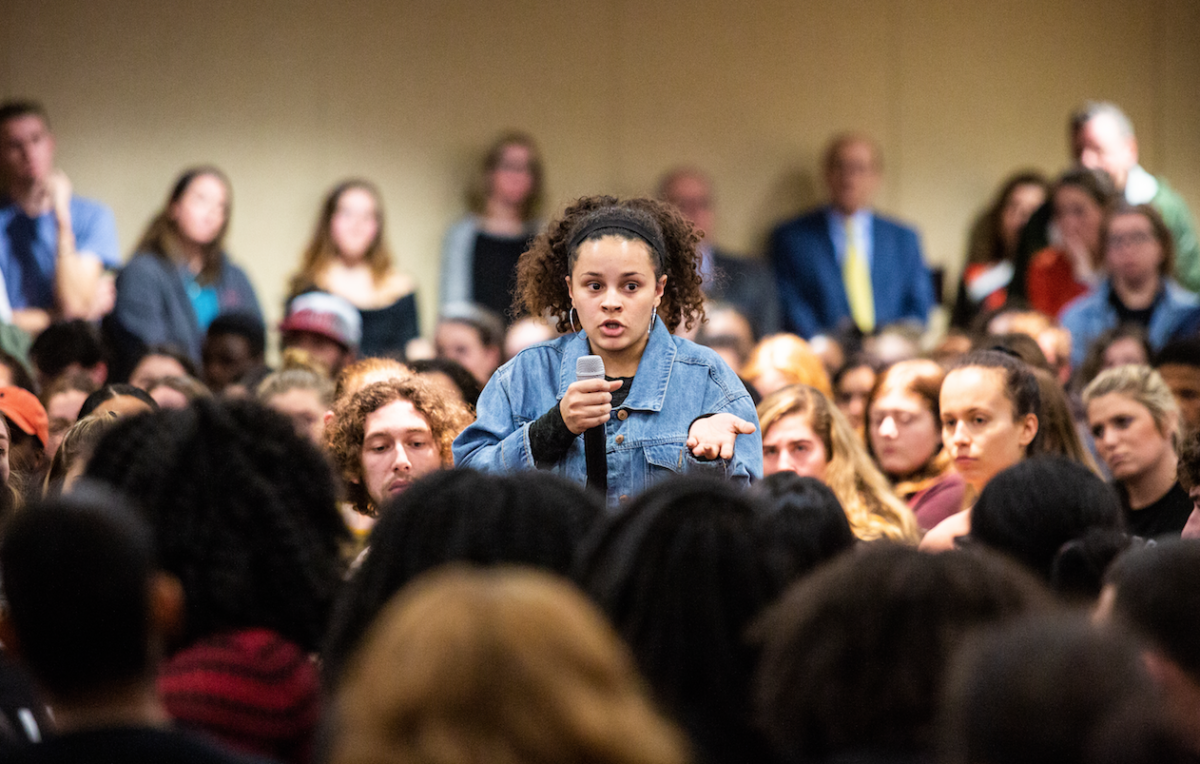More than 350 students, faculty, staff and alumni packed the North Doyle Banquet hall on Dec. 3 for an emotional discussion about racism on campus. They stood along the walls and spilled into the Campion Student Center hallway as black students shared their experiences.
The discussion was prompted by an incident that occurred Sept. 28 when a white student left a racial slur on the residence hall door of two black students. The incident and the university’s response led to an uproar among students.
Shaily Menon, Ph.D., dean of the College of Arts and Sciences, said the event marked a critical moment for the institution.
“This has galvanized the campus,” Menon said. “This is a powerful moment for us to take the next step.”
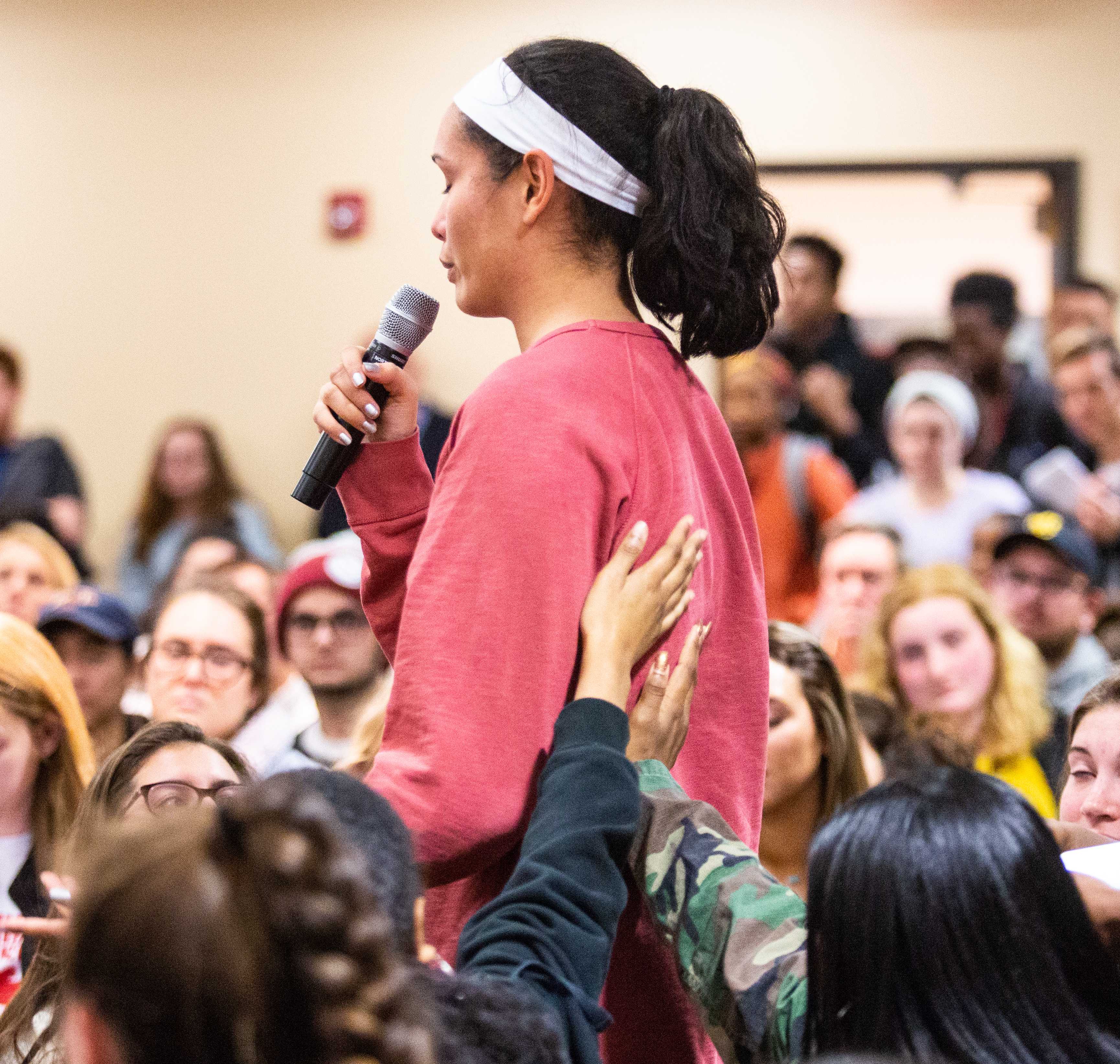
The student-organized forum on racism titled “When will it stop?” was organized by Black Student Union (BSU) members, who encouraged the St. Joe’s community to join in an open discussion about racism on campus.
The forum was preceded by a silent march around campus, organized by other students, that ended at the university’s annual Christmas tree lighting in front of Villiger Residence Hall.
Student Senate President Jason D’Antonio ’19 gave a few remarks at the lighting before telling attendees, which included President Mark C. Reed, to instead turn and join the protestors, who were standing silently, signs raised, and follow them to the forum in Campion Student Center.
Some members of the crowd seemed surprised by D’Antonio’s announcement, but most of them, including Reed, joined behind the protestors.

When organizers opened the floor to attendees at the forum, Camille Lodugnon ’22 was the first to stand and take the microphone, identifying herself as one of the victims of the Sept. 28 incident.
“The way administration handled it was disgusting,” Lodugnon said. “It was kind of a slap in the face.”
Alyvia Benson ’22, the other victim, spoke later in the event.
“This isn’t about just me and her [Lodugnon],” Benson said. “It’s about everything that happens on this campus and what people of color experience.”
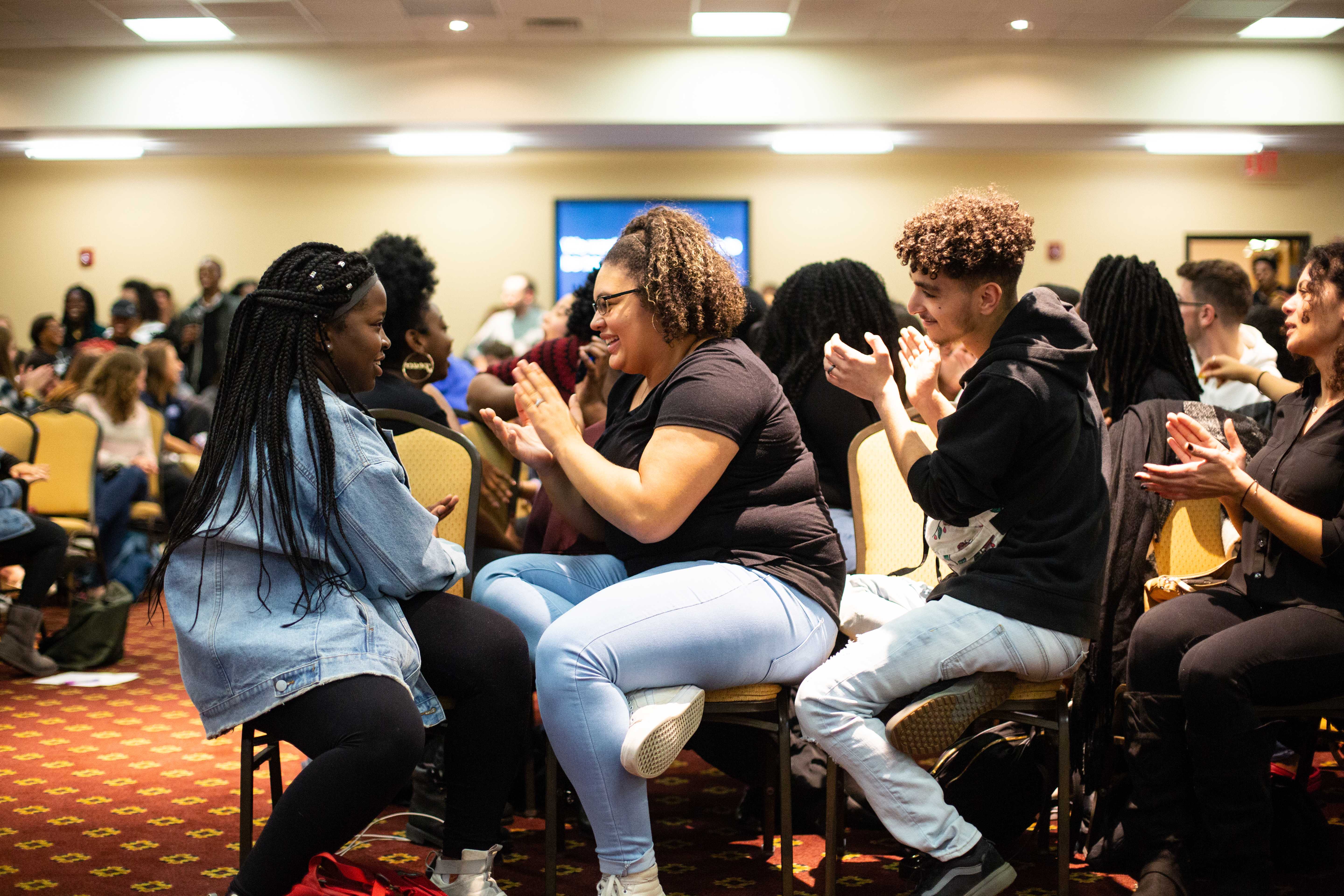
Black students at the forum expressed their frustration with repeated incidents of racism on campus and a lack of serious institutional response.
“The more and more I open my eyes on campus, I see more crap,” Alim-Karim Kamara ’20 said. “It’s happening a lot, and it’s all something we really need to be aware of as a school.”
Brianna Holloway ’17 said she came back to campus to let the administration know that how the situation was handled is “unacceptable.” She said she experienced instances of racism at St. Joe’s multiple times starting in her freshman year.
“This is not new to Saint Joseph’s,” Holloway told the audience. “Everything at this university is a cycle of mishandling and not understanding how people of color on this campus feel. It is a gross negligence of everybody on this campus from the higher-ups.”
Benson’s mother also criticized how administrators handled her daughter’s case. As she stood in front of the crowd, she directed her attention to Cary Anderson, Ed.D., associate provost and vice president for Student Life, who leaned against the back wall.
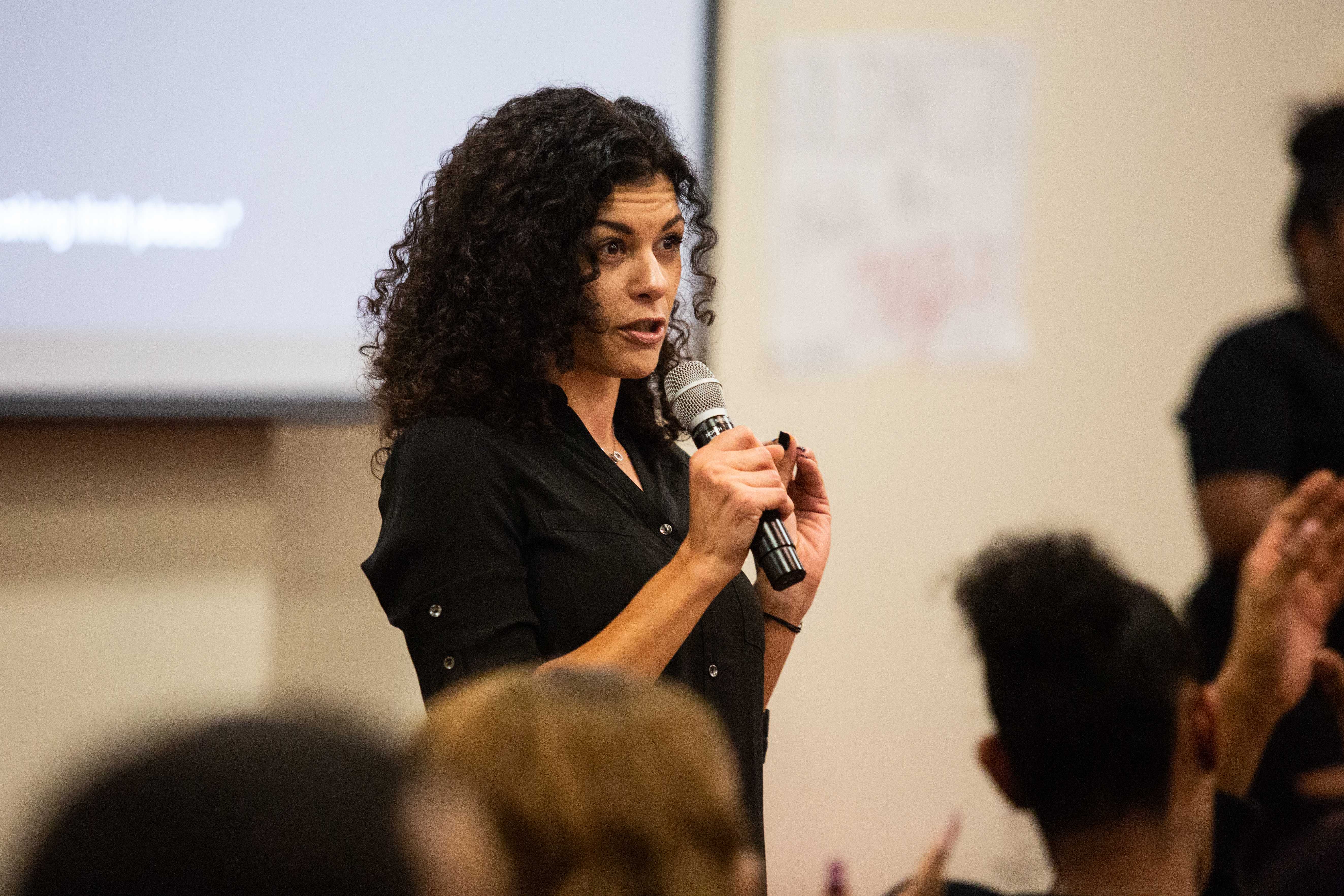
“I could have let you cover it up, Cary Anderson, but I didn’t,” Alysia Benson, Alyvia’s mother, said.
“Your smirk right now is because you’re uncomfortable, and you should be as uncomfortable as my daughter is every day.”
As Alysia Benson spoke, the room erupted with passionate support.
“If someone says something racist, it is our responsibility to utilize the privilege we have and say something,” Katie Sellars ’21 said.
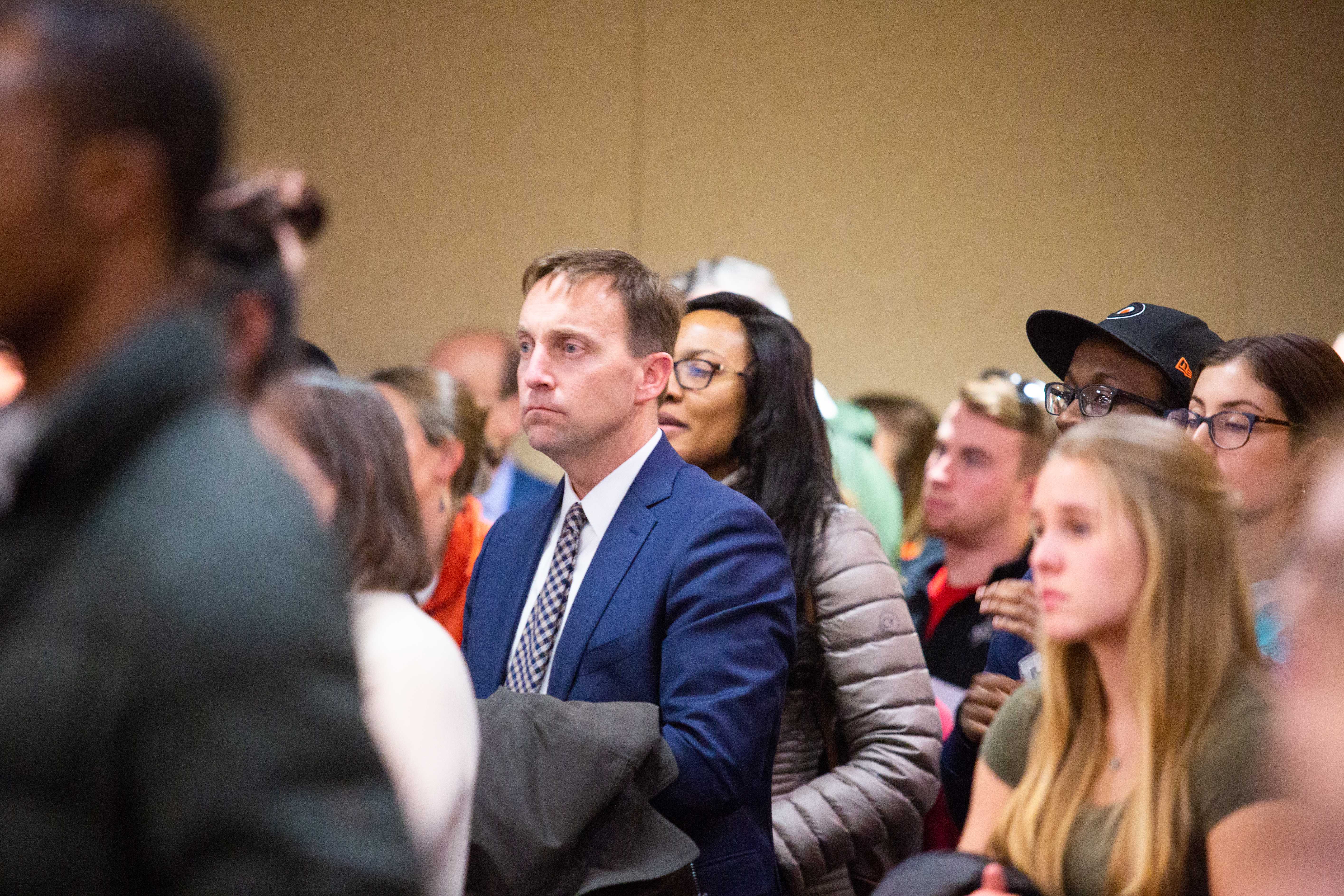
Many students directed their frustrations toward administrators, some of whom were in attendance, including Reed, who left about halfway through the event.
The two deans of the university’s colleges, Menon and Joseph DiAngelo, Ed.D., dean of the Haub School of Business, also attended the event.
“If I was that mother, I would be just as mad,” DiAngelo told The Hawk after the forum. “If it was my kid, I would have acted a lot worse than that mother, I’ll tell you that.”
Menon said she was humbled by the support from the students.
“I think this is a critical moment for the institution,” Menon said. “It should be a teachable moment for everyone. I hope that we will have many conversations working together to live up to the ideals of this institution.”













































